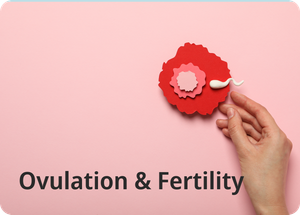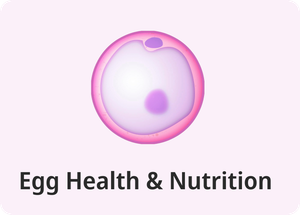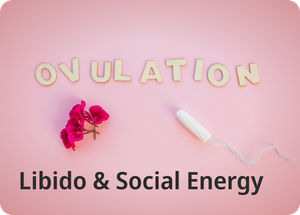Every month, the menstrual cycle quietly orchestrates a complex interplay of hormones. While some people pass through it with ease, many experience fatigue, mood swings, bloating, or painful cramps. Food and lifestyle certainly play a central role in managing these ups and downs, but for some, supplements can offer additional support.
The idea is not to “fix” the cycle because menstruation is not an illness but to provide the body with building blocks it sometimes struggles to get in enough quantity. Let’s explore the supplements most commonly used to promote cycle health, what the evidence says, and how they may fit into daily life.
Menstrual bleeding is one of the most common causes of iron deficiency worldwide. Women of reproductive age often find themselves low on iron without even realizing it. Tiredness, pale skin, frequent headaches, or brittle nails may be subtle signs.
Iron supplements can be helpful, particularly for those with heavy bleeding. However, it is important to use them under medical advice, since too much iron can cause digestive discomfort and, in rare cases, organ strain. A doctor may recommend regular blood tests before supplementation.
Premenstrual mood swings and irritability are often linked to changes in neurotransmitters such as serotonin. Vitamin B6 plays a role in their production, which explains why supplementation has been studied for premenstrual syndrome (PMS).
Some trials have shown that B6, taken in moderate doses, can reduce irritability, fatigue, and depressive symptoms in the luteal phase. It is not a magic pill, but combined with a balanced diet, it can make the emotional lows of the cycle less overwhelming.
If there is one mineral that deserves the spotlight for menstrual comfort, it is magnesium. It participates in hundreds of enzymatic reactions, including muscle relaxation and nerve regulation.
Many women report that magnesium eases cramps, reduces bloating, and even helps with sleep quality in the days leading up to menstruation. A diet rich in leafy greens, nuts, and seeds already provides some magnesium, but supplementation may be useful for those with persistent PMS or painful cramps.
Pain during periods is often driven by prostaglandins—hormone-like chemicals that trigger uterine contractions. Omega-3 fatty acids, found in fish oil and flaxseeds, compete with the same biochemical pathways, leading to the production of less inflammatory prostaglandins.
Several studies suggest that omega-3 supplements can reduce menstrual pain and improve overall well-being. They may also support skin and mental health, which can fluctuate during the cycle.
Vitamin D is technically a hormone, and its influence extends far beyond bone health. Deficiency has been linked to irregular cycles, more severe PMS, and higher risks of polycystic ovarian syndrome (PCOS).
In regions where sunlight exposure is low, supplementation is often necessary. Even in sunny countries, indoor lifestyles can leave many deficient. Correcting low vitamin D levels can help regulate hormones and reduce fatigue, particularly in the winter months.
Hormonal acne flares, especially around the chin and jawline before periods, are a common complaint. Zinc plays a role in wound healing, skin balance, and immune regulation. Research suggests that supplementation can help reduce inflammation and support clearer skin.
It is not just about acne that zinc also supports ovulation and general reproductive health. As with iron, supplementation should be balanced, since too much zinc can interfere with copper absorption.
While vitamins and minerals form the foundation, certain herbs have been used for centuries in menstrual health.
Herbal supplements are powerful but not always suitable for everyone. They can interact with medications and need to be chosen carefully.
Supplements work best as part of a bigger picture, which includes nutrition, sleep, exercise, and stress management remain key pillars of menstrual well-being.
Supporting the menstrual cycle with supplements is less about quick fixes and more about filling nutritional gaps. Iron, B vitamins, magnesium, omega-3s, vitamin D, and zinc all play distinct roles, while herbs like chasteberry and ginger offer traditional yet evidence-backed support.
The real power lies in personalization: not everyone needs every supplement. Listening to your body, working with a healthcare provider, and making small but consistent changes often make the greatest difference.
About PeriodSakhi
PeriodSakhi is your trusted companion for understanding your menstrual health. With easy-to-use tools, it helps you track your periods, ovulation, fertility, moods, and symptoms, while providing insights into your overall reproductive and hormonal health. PeriodSakhi also serves as a supportive online community where women can share experiences, find reliable information, and access expert-backed guidance on menstrual health, PCOS, pregnancy, lifestyle, and more.
Disclaimer
The views, thoughts, and opinions expressed in this article/blog are solely those of the author and do not necessarily reflect the views of PeriodSakhi. Any omissions, errors, or inaccuracies are the responsibility of the author. PeriodSakhi assumes no liability or responsibility for any content presented. Always consult a qualified medical professional for specific advice related to menstrual health, fertility, pregnancy, or related conditions.
Start the conversation
No comments yet. Start the conversation by leaving the first comment!




